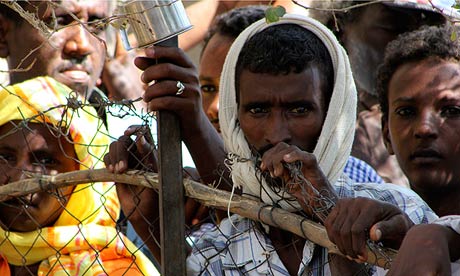Four Catholic bishops in Eritrea have taken a huge risk in issuing a statement criticising conditions in their nation.
A 2014 Human Rights Watch report described the African nation as one of the most closed countries in the world, where human rights conditions are “dismal”.
Indefinite military service, torture, arbitrary detention and severe restrictions on freedoms of expression, association and religion provoke thousands of Eritreans to flee the nation each month.
Last year, hundreds of Eritrean migrants drowned off the Mediterranean island of Lampedusa.
This was the island visited by Pope Francis last year in his first trip outside Rome as pontiff.
According to the United Nations High Commissioner for Refugees, more than 305,000 Eritreans have fled in the last decade.
The bishops described Eritrea as “desolate” because so many people had fled or were in the prison or army.
In their 38-page letter, the bishops said Eritreans were going to “peaceful countries, to countries of justice, of work, where one expresses himself loudly, a country where one works and earns”.
But there was no-one left to look after the elderly in Eritrea, they said.
The bishops pointedly said that “all those who are arrested should first be handled humanely and sympathetically” and then be presented to court for trial.
The letter was signed by Bishops Mengsteab Tesfamariam of Asmara, Tomas Osman of Barentu, Kidane Yeabio of Keren and Feqremariam Hagos of Segeneiti.
They were careful not to directly condemn the Eritrean government.
Eritrea has no constitution, functioning legislature, independent judiciary, elections, independent press or non-governmental organisations.
All power in concentrated in the hands of President Isaias Afewerki who has ruled since 1991.
Catholicism is one of four permitted or government-controlled religions in Eritrea.
The others are Sunni Islam, Ethiopian Orthodoxy and Lutheranism.
Since 2002, the Eritrean government has jailed and physically assaulted people who practice any other religion.
The Orthodox patriarch in the country was deposed by the government in 2002 and remains under house arrest.
Sources
